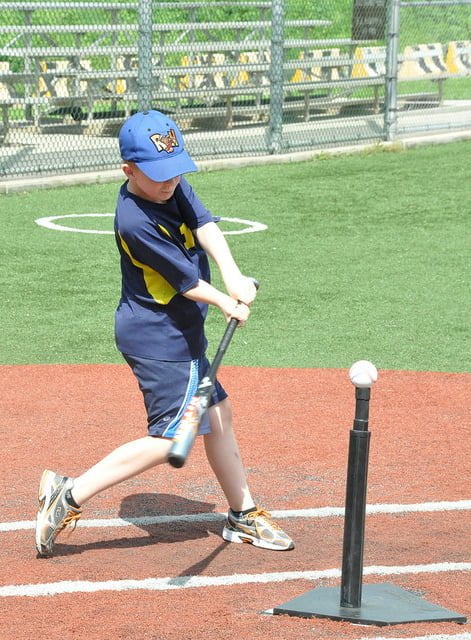French parenting: how does it compare to the anglo approach?
No one ever said raising kids was easy – but Pamela Druckerman did say that the French do it better.
There’s been a lot of debate over the past few years surrounding the French parenting method; with some arguing its superiority and other suggesting it’s a return to the 1950’s.
We’ve asked qu’en pensez-vous about French parenting in the past. Now we want to know the parenting secrets of the French, Americans, Australians and the British.
Each country has their own helpful tactics to tame their toddlers and we’re excited to share these tips with you!
French parenting
If we listen to authors Pamela Druckerman, Catherine Crawford and Karen Le Billon then the French style of parenting will give us perfect sleepers, gourmet eaters and well-behaved little cherubs.
As she explains in her book ‘Bringing up Bebe’ Pamela Druckerman says, “the French have managed to be involved with their families without becoming obsessive.”
“They assume that even good parents aren’t at the constant service of their children, and that there is no need to feel guilty about this.”
Here are the key characteristics associated with French parenting.
1. Delayed gratification
Amity Dry from Essential Baby says while we all know patience is a virtue, French children are taught this from a young age. “French parents also place a strong emphasis on teaching their children patience and delayed gratification, and if an adult is speaking they are expected to wait their turn,” she explains.
While the French may have mastered delayed gratification, “this is an area where Aussie kids are struggling more and more, as their parents do exactly the same,” she says.
According to Julia Baird from Daily Life, French children are also taught to sleep through the night earlier, “the French are comfortable with controlled crying for a short period – known as ‘la pause’.”
2. Showing them who’s boss
According to Amity Dry it all comes down to authority. “[Druckerman] summarised that we lack the authority with our children that French parents have mastered, and that we suffer because of it.”
While the French still accept la fessée – or spanking – this is something the Sydney Morning Herald says “would be seen as unacceptable by many British or Australian parents today.”
Indulging in a bit of satire, the Sydney Morning Herald say, French parenting “can be summed up in three rules: you, the parent, are le Chef and your word goes; if there is no blood [when a child falls down], don’t get up, and – most importantly – drink more wine.”
Australian parenting
For a relatively new nation Australia has come a long way from the speak-when-you-are-spoken-to style of parenting. Family units are often very relaxed, with parents and kids engaging freely and discussing the reasons why certain rules are in place – at least from my experience.
Here are the most common traits of Australian parenting:
1. Spend more time with the kids
Australian parents seem to spend more time with the kids than their overseas counterparts. “In many ways, Australian parents are more relaxed – although still noticeably judgmental of working mothers,” says Julia Baird.
My French Life™ contributor Alison Eastaway believes this is because Australian mothers don’t have the luxury of state funded childcare like the French. “In Australia the cost of childcare can outweigh the financial benefits of mothers returning to the workforce, or ensure they only return part-time.”
2. Encouragement is key
Michelle Griffin from the Sydney Morning Herald asked French parents living in Australia how they saw our parenting style.
“Australian parents, like the Americans in Druckerman’s book, strike the French parents as too consultative,” she says.
That aside the French parents were very impressed with the concept of ‘Show and Tell’. Michelle Griffin said they like the support given to children, and the recognition of accomplishments that aren’t just academic.
While French parents may find our education system indulgent they do like the encouragement given to kids. Whether it’s sport, maths or singing, Australian parents will praise their children’s achievements and encourage them to keep improving.
American parenting
According to Sarah Fernandez from Parentables, American parents supersede their French counterparts in five main areas: having empathy, keeping an open mind, teaching friendliness, hard work and being engaged.
Here is what American parents find most important:
1. Fostering creativity
Whether it’s playing little league or learning ballet, American parents are always busy fostering individuality and encouraging their children to be competitive. But Pamela Druckerman believes this can pose a problem.
“French parents want their kids to be stimulated, but not all the time. While some American toddlers are getting Mandarin tutors and pre-literacy training, French kids are—by design—toddling around by themselves.”
2. Put the kids first
In pushing for their children to be the best they can be American parents can sometimes find themselves catering to their child’s every wish.

From reading parenting manuals obsessively to, “allowing kids to be emperor-children who dominate their lives when awake and asleep,” American parents always put the kids first.
But, as Sarah Fernandez points out, this hands-on approach is by no means always a negative thing. She says “American parents have a tendency to know what’s going on in school or with sports and to show up in the classroom to volunteer and be on top of an issue when one arises, whereas French parents consider school something that kids go to and that parents stay out of.”
British parenting and a generalised Anglo-Saxon approach
American and Australian parenting methods share many similarities with their British counterpart.
These Anglo-Saxon countries seem to have a similar approach to parenting, which fosters creativity and individuality.
Anglo-Saxon parents focus on these main areas:
1. Teaching how and why
This style encourages children to understand their behaviour and what makes it good or bad. This consultative approach treats kids more like mini adults who need to be taught how and why things are the way they are.
2. Individuality
There is an importance placed on understanding and forming opinions rather than simply being told the answers. This approach also focuses on modern learning methods, as it caters for visual, kinaesthetic and auditory learners, instead of forcing children to learn by rote.
According to Ruth Margolis from BBC America, the British aren’t afraid to leave their kids alone, and let them amuse themselves. This helps children find their own interests: “We assume our kids will still get into university even though they once watched Power Rangers.”
3. Finding their strengths
Anglo-Saxon cultures also value other skills outside academia, meaning a child who isn’t the strongest in maths will still be made to feel good at something.
Kim Willsher from the Guardian says while this style of parenting aims to raise well-informed children, we often run the risk of trying to keep them happy at all costs.
Willsher interviews Dr Caroline Thompson, a Paris-based child psychologist and family therapist. Dr Thompson says that, “if we empathise too much with our children that it becomes intolerable to punish or limit them, this is terrible for the child. If you believe your main objective is to be liked by your child, you are in big trouble.”
A balanced approach
While all four of these countries are similar they’re all very different too. While one style of parenting may work well in France there’s no guarantee it’ll work in America.
Julia Baird says Pamela Druckerman’s main premise is a good foundation. “Children should understand other people have needs and feelings too, and that the world does not pivot on their whims.”
She adds: “it is important for mothers in particular to retain their identities as women, not just mothers. Kids should be encouraged to be polite, fit in with the family, eat what their parents eat (mine rarely do) and learn to read and play on their own.”
Finding what works for your family may not be as simple as trying one style. Follow your intuition and find a balance that works in your house.
What are your pillars of parenting? Are they common in your country or unique to your family? The conversation is missing your voice! Jump in at the comments box below.
Image Credits1. Baby Waving with Parents in Background by Russ Robinson, via Flickr.
2. family – 0642 by Parker Knight, via Flickr.
3. Cry Baby by TheGiantVermin, via Flickr.
4. St Amand-les-eaux park (15) by Mo, via Flickr.
5. OpusDC48 by Jesi Kelley, via Flickr.
6. CYSS Friendship Tee Ball with Cheonan Therapeutic Center – U.S. Army Garrison Humphreys, South Korea – 20 July 2013 by USAG-Humphreys, via Flickr.
6. Local children at Fontainebleu, Paris by faungg, via Flickr.












